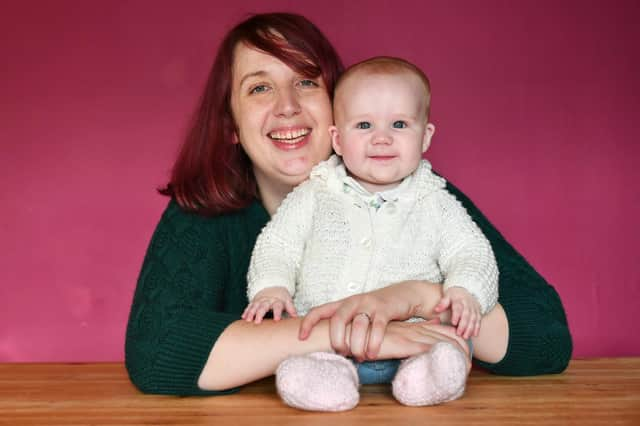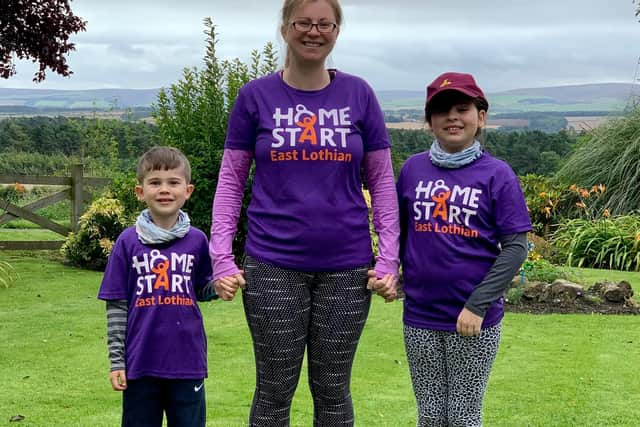'It was traumatic, I'm still scared of that sickness' - Scots mums speak out about rare pregnancy condition


It was not until she collapsed in a train station on the way to work and had to be rushed to hospital that others realised what she was going through.
Evelyn Swinton was hospitalised four times during her first pregnancy, but still her GP made her feel like a “drama queen” when she asked for support after being discharged.
Advertisement
Hide AdAdvertisement
Hide AdThe two women both suffered from Hyperemesis Gravidarum (HG), an extreme nausea which affects between one and three per cent of pregnancies.


“Every time I moved or stood up or did anything I just felt horrendously ill,” said Ms Armstrong, 29.
“I don’t think people really appreciated how bad it was until I was in the hospital, I think they thought I was being a bit of a drama queen.”
“It’s quite miserable when you feel horrendous but because everyone expects you to feel sick when you’re pregnant, and it’s difficult to explain how much you’re struggling with it, mentally as well as physically.”
Ms Armstrong, from Fife, was prescribed medication including Ondansetron in hospital which helped her cope until baby Edith was born six months ago.
Unlike the majority of sufferers, HG caused nausea rather than vomiting in Ms Armstrong’s case.
For Ms Swinton, 35, from East Lothian, it induced vomiting to the extent she was still being sick during labour.
She was hospitalised four times during pregnancy with her first baby, Rosie, born in 2011.
Advertisement
Hide AdAdvertisement
Hide AdShe was prescribed Ondansetron in hospital, but had to “fight” to get the prescription continued by her GP, who made her feel like a “drama queen” for complaining about her condition.
"The whole pregnancy I was fighting a losing battle with my work and my doctor,” she said, adding: “It was really isolating”.
Ms Swinton still feels the effects of HG, which she also suffered during her second pregnancy in 2014-15.
“It’s still traumatic, it’s like PTSD,” she said, adding that ordinary stomach bugs now remind her of the experience.
“I’m so scared of that sickness, and as soon as I feel it it just takes me back to that place.”
Ms Swinton felt “ungrateful” for not enjoying pregnancy, and found herself isolated from other new mothers, as she was too ill to go to antenatal classes.
Charity Pregnancy Sickness Support aims to raise awareness of HG and facilitate peer support.
"Hyperemesis is a hugely debilitating condition and unfortunately access to care and treatment can still be very hit or miss across Scotland,” said Leonie Searle, Support & Development Coordinator.
Advertisement
Hide AdAdvertisement
Hide Ad"There are some hospitals in Scotland offering excellent day unit treatment for all patients needing rehydration and medicines, yet there are others whose guidelines are out of date and insist women "prove" how unwell they are with a misleading urine test before they will give them treatment.
"We get a lot of calls from women experiencing the latter and this has increased massively since the start of the Covid Pandemic which has further reduced access to healthcare for our women. Until all women are able to access excellent, evidence-based care as standard for themselves and their babies, we have a lot more work to do to raise awareness."
A message from the Editor:
Thank you for reading this article. We're more reliant on your support than ever as the shift in consumer habits brought about by coronavirus impacts our advertisers.
If you haven't already, please consider supporting our trusted, fact-checked journalism by taking out a digital subscription.
Comments
Want to join the conversation? Please or to comment on this article.